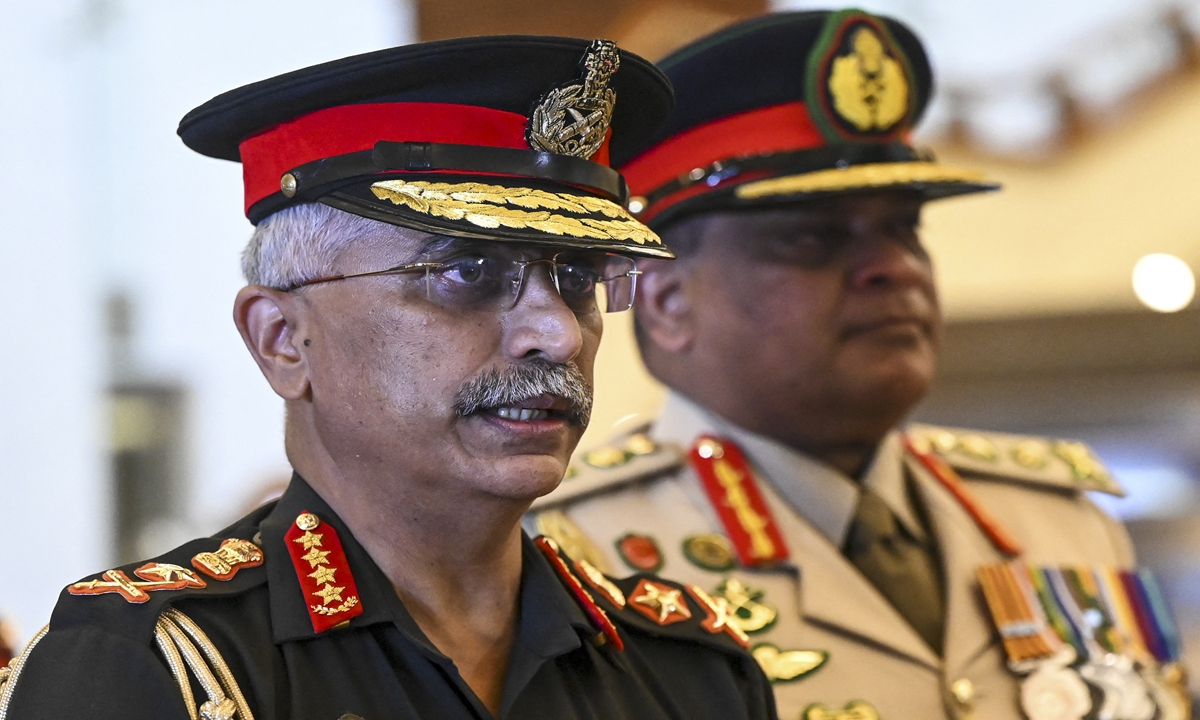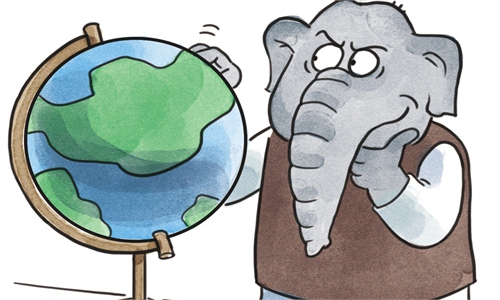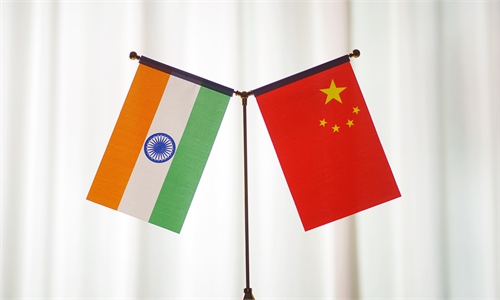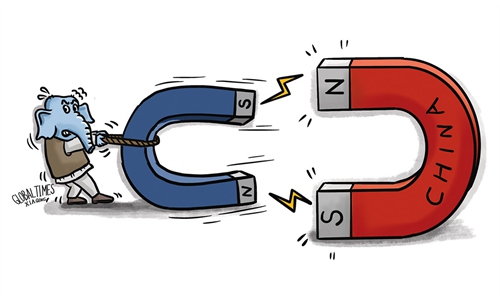
India's Chief of Army Staff General Manoj Mukund Naravane address a joint press briefing as Sri Lanka's Army chief Lieutenant Shavendra Silva looks on at the Sri Lanka Army Headquarters in Colombo on October 13, 2021. (Photo by Ishara S. KODIKARA / AFP)
Indian Army Chief Gen MM Naravane "sent a clear message to China that India won't let any attempts to unilaterally change the borders succeed at the Line of Actual Control amid an ongoing standoff between the two sides," when addressing an Army Day parade on Saturday, according to Hindustan Times.Naravane's rhetoric is not in line with the positive signals conveyed during the 14th round of China-India Corps Commander Level Meeting held on Wednesday. In comparison to the 13th round three months ago, in which India insisted on unreasonable and unrealistic demands, the atmosphere of the 14th round was relatively good. The two sides agreed to work toward a resolution on the border issue as soon as possible and to take effective measures to maintain security and stability on the ground.
Naravane just repeated anti-China clichés often heard within the Indian military, especially the Indian army. For example, the late chief of defense staff general Bipin Rawat had labeled China as the "biggest security threat" to India. Their remarks went against the consensus reached between China and the Modi government in regard to border disputes between the two countries.
In the aftermath of Rawat's death in a helicopter crash in December, Naravane has taken over some of the responsibilities of the Chief of Defense Staff as chairman of the Chiefs of Staff Committee. As a fresh chairman, he continues Rawat's anti-China stance, in a bid to consolidate his position.
Meanwhile, the Indian military wants to regain some face. After a long-term confrontation, India has realized that its attempt to unilaterally change the status quo of the Line of Actual Control by force cannot succeed. India can only solve the problems at the commander level or through diplomatic-level talks with China. These are the only correct paths. However, the Indian military does not want to lose face. Therefore, it has uttered tough remarks against China, in response to India's domestic criticisms of its improper handling of the China-India border issue.
The COVID-19 epidemic has seen a resurgence in India again. The third wave of the COVID-19 epidemic has begun in India. As the epidemic spirals out of control and India's economic development faces setbacks, some Indian military and political departments point their fingers at neighboring countries like Pakistan and China. This is their usual tactic to divert attention from domestic conflict.
Apart from China, Naravane's rhetoric involves Pakistan. He slammed Pakistan for harboring terrorists and attempting to vitiate the atmosphere in Kashmir. The India-Pakistan conflict and China-India border dispute have been stagnant for a long time because India has a strong, conservative and radical force against China and Pakistan. These forces have formed an interest group that views inciting nationalist sentiments as an effective way to obtain budgets, legitimacy and authority. They attempt to gain higher military expenditure by showing toughness toward external "enemies" and inciting nationalism. It's because of the existence of this conservative, anti-China and anti-Pakistan military and political interest group that border disputes with China and Pakistan are slow to be resolved.
A new wave of the epidemic is raging in India. Its Legislative Assembly elections are scheduled to be held in Uttar Pradesh from February 10 to March 7, 2022, the results of which may directly determine the direction of the 2024 general election. Various domestic forces of India are fiercely wrestling as elections approach. It's likely that some hard-line forces in India may carry out some risky and adventurous operations in the border areas in 2022. This deserves vigilance from neighboring countries such as China, Pakistan and even Nepal.
The author is head of the Department for Asia-Pacific Studies at China Institute of International Studies. opinion@globaltimes.com.cn



